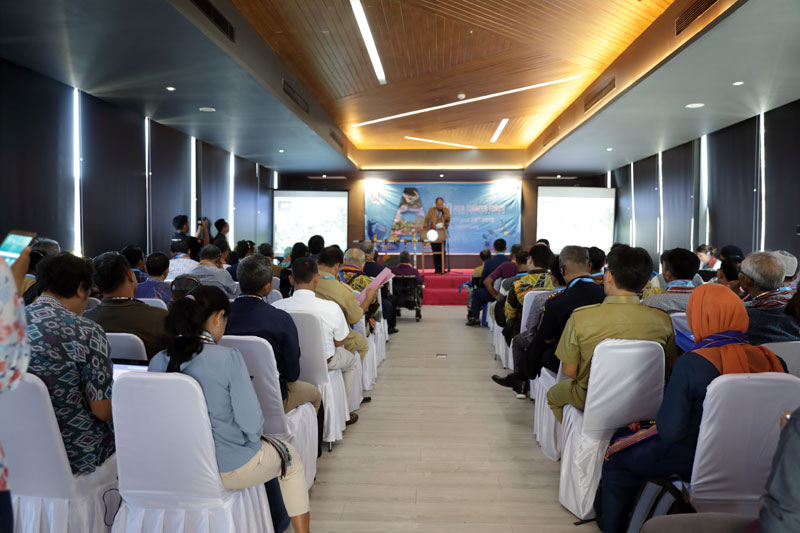Discussing challenges

 The International Tobacco Growers Association (ITGA) met in Lombok, Indonesia. Demand for tobacco products has been declining as many smokers either quit or switch to new products that require little or no leaf. Delegates from Azerbaijan, India, Indonesia, Philippines and Thailand joined regional and national government officials, among other stakeholders, to discuss these and other challenges.
The International Tobacco Growers Association (ITGA) met in Lombok, Indonesia. Demand for tobacco products has been declining as many smokers either quit or switch to new products that require little or no leaf. Delegates from Azerbaijan, India, Indonesia, Philippines and Thailand joined regional and national government officials, among other stakeholders, to discuss these and other challenges.
In a written message, Indonesia’s Minister of Agriculture stressed the importance of tobacco to his country. Tobacco directly accounts for more than 4 million jobs in Indonesia. Including related industries, the figure exceeds 6 million. The minister stressed the government’s continued commitment to tobacco and good agricultural practices.
Antonio Abrunhosa, ITGA’s CEO, explained that smoking is decreasing even in China, which means the country’s cigarette consumption no longer compensates for declines in the rest of the world. Legal cigarette sales are also threatened by the illicit trade, which accounts for more than 10 percent of the global tobacco market and as much as 40 percent of legal cigarette sales in some countries.
Despite these declines, the global cigarette market remains substantial, with nearly 1 billion smokers, according to Abrunhosa.
Apart from oriental tobacco, which is used in the increasingly popular heated-tobacco products, cultivation of all tobacco types has been declining. Abrunhosa stressed the need to research viable complementary or alternative crops to tobacco.
Despite the decline in cigarette volumes, values in Southeast Asia are expected to increase due to growing consumer incomes, according to Adhitya Nungroho of Euromonitor International. He said heated-tobacco products would continue to grow throughout the region, especially in countries such as Japan and China. The segment would have less of an impact in Indonesia, he predicted, due to that countries peculiar market, which is dominated by clove cigarettes.
A representative of the Indonesian Association of tobacco growers, lamented that, despite sector’s strong commitment to the United Nations’ Sustainable Development Goals, tobacco growers kept getting excluded from many UN programs.
The Lombok meeting also included a field trip during which delegates visited several tobacco-growing villages. The local tobacco association AMTI has been promoting good agricultural practices and empowering women. Its programs also involve capacity-building sessions, distribution of vegetables and fruit seeds, and training for the production of liquid fertilizers and organic pesticides.
